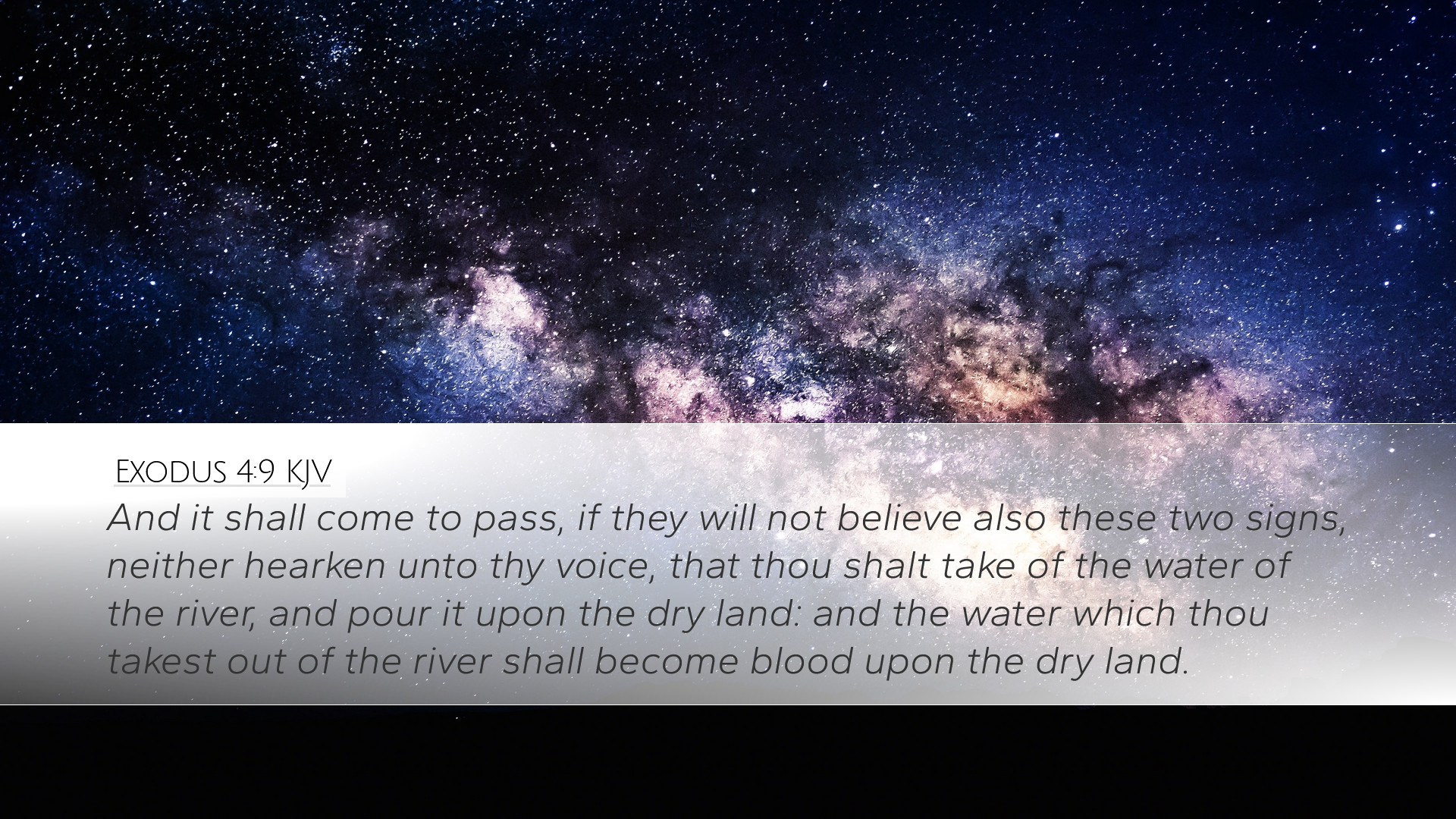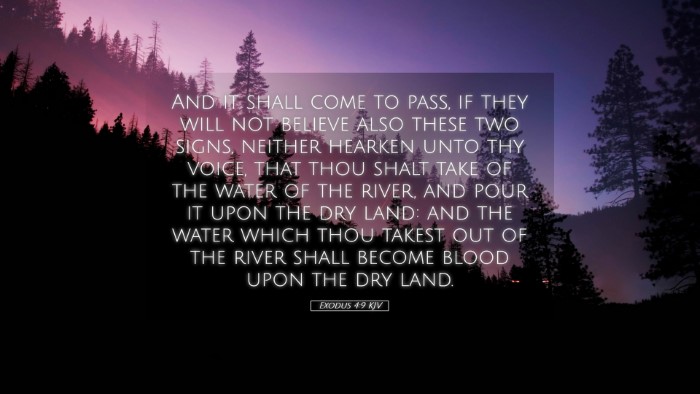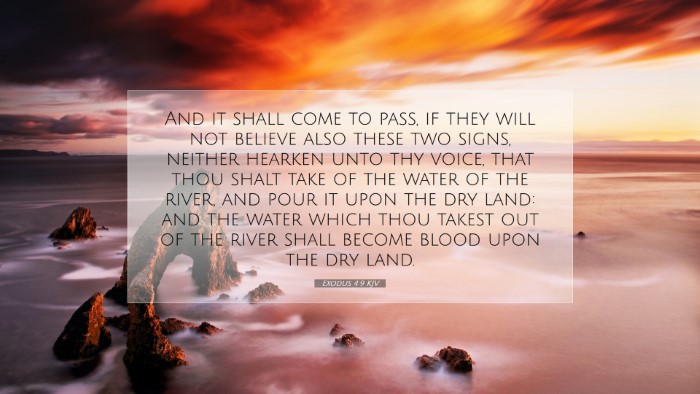Exodus 4:9 - Commentary and Insights
Scripture Reference: Exodus 4:9 - "But if they do not believe even these two signs, or listen to your voice, you shall take some water from the Nile and pour it on the dry ground; and the water that you take from the Nile will become blood on the dry ground."
Introduction
The verse Exodus 4:9 occurs during the dialogue between God and Moses where God is commissioning Moses to lead the Israelites out of Egypt. This passage highlights a critical aspect of divine communication and the human condition regarding faith and belief. Various public domain commentaries provide a wealth of insights that expound upon significant themes within this verse, including signs, wonders, the nature of belief, and God's faithfulness in witness.
Significance of Signs
Matthew Henry emphasizes that the signs given to Moses serve as a divine assurance. God, knowing the hearts of the Israelites, provides Moses with tangible miracles. These miracles are not just for display; rather, they are intended to convince a struggling people of God’s sovereignty and plan for their deliverance.
According to Albert Barnes, the signs are powerful evidences of God's intention and authority. The transformation of water into blood is particularly significant as it foreshadows the plagues that will come upon Egypt. This sign is meant as a precursor not just to verify Moses’ mission, but to prepare both Moses and the Israelites for the upcoming confrontation with Pharaoh.
The Nature of Unbelief
Moses expresses concern about the disbelief of the Israelites and the difficulty he may face in convincing them. Adam Clarke interprets this as an insight into Moses' own insecurities and the challenge of leadership. The verse indicates a common theme: that signs may not always compel belief. Unbelief can stem from a myriad of reasons, including fear, oppression, and hardened hearts.
This prompts a broader reflection on the nature of faith within the biblical narrative. Matthew Henry suggests that a heart predisposed to skepticism cannot be easily swayed even by miraculous deeds. This can serve as a caution for leaders and pastors to recognize that while they may be called to perform their ministries faithfully, they cannot control the receptive state of their congregation's hearts.
Water to Blood - A Symbolic Act
The act of taking water from the Nile and turning it into blood is deeply symbolic. The Nile was a life source for Egypt, representing sustenance and fertility. Albert Barnes notes that this action not only serves as a sign but also as a judgment against the Egyptian worship of the Nile. Thus, this miracle speaks to the sovereignty of God over nature and highlights the futility of placing faith in created things rather than the Creator.
Adam Clarke elaborates that this sign symbolizes the potential for divine transformation. Just as water can be transmuted into blood, so too can the hearts of individuals be transformed by faith. This duality—of life and death, abundance and scarcity—foreshadows the future judgments that will befall Pharaoh as the narrative unfolds.
Divine Assurance and Human Response
The divine assurance given to Moses is a significant takeaway from this verse. God does not leave Moses to convince the Israelites with words alone; He provides miraculous signs to supplement Moses' declarations. This emphasizes the importance of God's participation in the process of reconciliation. Matthew Henry reminds us that the signs were designed to confirm Moses' credibility, but ultimately, the acceptance of the messenger is contingent on the inner workings of faith within the hearts of the people.
This condition of belief reflects the broader theological implications of God's patience with humanity. While God desires all to come to faith, He understands the struggles and doubts that arise in the human experience. In this context, Albert Barnes posits that God's signs are intended to elicit a response of faith, but human disbelief serves as a reminder of the fallen state of humanity.
Conclusion
Exodus 4:9 serves as a poignant reminder of the tension between divine initiative and human response. The signs that God provides to Moses encapsulate God's desire to engage with His people and demonstrate His power. As pastors, students, theologians, and scholars delve into this passage, they are encouraged to reflect on the nature of faith, the weight of their calling, and the transformative power of God’s presence in their ministry and daily life.
This verse not only foreshadows the coming trials of Egypt but also encourages believers to have faith amid uncertainty and to seek the transformative power of God in every aspect of their lives.


